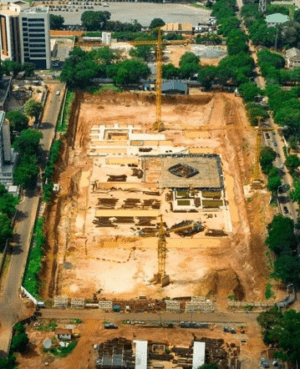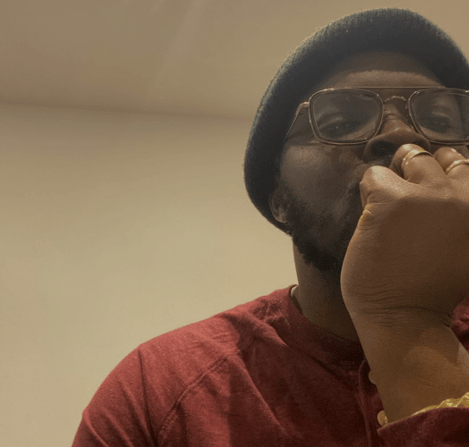By Anny OSABUTEY
This week, thanks to a report by the Commmission for Human Rights and Administrative Justice (CHRAJ), President Nana Addo Dankwa Akufo Addo’s pet project – the National Cathedral – was again back in the news, with a recommendation to the Office of the Special Prosecutor (OSP) to commence investigations into procurement breaches by members of the Board of Trustees.

Following my reading of extracts of the report, I went back to an article I read in 2018 by the US-based Nigerian art critic, historian and academic at Princeton University, Professor Chika Okek-Agulu, who said critics should not fight the project.
In the said article – published in the online version of The New York Times of April 14, 2018 and headlined ‘Ghana Deserves This Cathedral. Don’t Fight It’, Professor Okeke-Agulu argued, among other points, that the project “signals that the country is poised to consolidate the gains of decades of democracy”.
The article came on the back of the public’s reservation about the truth behind the source for funding the project, espeically when Ghanaians were told not state money was going to be used apart from a land to be donated.
Contrary to that promise, the state has so far pumped over US$50million into what remains to be a hole. The question, therefore is, what do we do with the cathedral? How does an economy being supported by the International Monetary Fund commit extra resources to the cathedral?
According to Professor Okeke-Agulu, those who argue in support of basic needs before a project of such magnitude need to recognise that to rise, Africa has to aim beyond basic needs. He described as “worrisome” the idea that “until every home in Africa gets a mosquito net, every village a school, it should not build concrete dreams and inspiring structures”.
Again, he skinned his argument on the basis of what he claimed was opposition put forward by colonial governments in the 1900s to build universities in West Africa, as well as “defunding of higher education institutions in many parts of the continent beginning in the 1980s (because poor countries could not afford them).
I am not sure about whatever facts he may have had about the cathedral and the reservation, and why a president mindful of the challenges confronting his people would commit state funds into a pet project that seeks to satisfy ego and religious beliefs, to the detriment of critical sectors of the economy.
No country can eradicate poverty. It has never happened. Despite its economic might, the US still has a good number of its population battling income disparity. The difference in leadership is that, the American leadership will seek to push that money into helping to uplift its low income population to a level they can be comfortable, through well thought-through programmes that are nationalistic in character. On the other hand, ours has committed that amount into a pit, despite swearing heaven and earth no state money would be used.
Those who have reservations about the project do so out of care and goodwill to the well-being of the state and not out of malice or personal hatred to the president, as some of his supporters suggest.
For those with reservations about the project, they point to the Basilica of Our Lady of Peace, built by the late Félix Houphouët-Boigny, then president of Ivory Coasst, and what has become of it. At the time of the construction, most people cautioned against it. But the dictator felt the need to boost his personal ego with an edifice and thus, rubbished everyone. He even chased others into exile.
Today, the project remains a haunting image of how not to waste public funds to massage the ego of a leader. Interestingly, Professor Okeke-Agulu made reference to the Basilica and labelled it as “big white elephant of past dictators”.
For the ‘Cathedralists’, the argument is that the country did not solve all her problems before both the National Theatre and Conference Centre were built. That is true. But neither did the leadership at the time say it was going to use personal funding to fulfil a pledge to God. The same thing can be said about the Jubilee House. It divided opinion; but the sitting president at the time did not say he was going to use personal funds to complete it.
The cathedral can, therefore, not be situated in the same argument. I believe irrespective of whatever reservations a section of the public may have, if the mountain of lies had not be told, people would have rallied around it. That is the mistrust people have about the whole project.
Speaking at the centenary celebration of the Ga Presbytery of the Presbyterian Church of Ghana held at the Black Star Square, Accra, he said those opposed to the project are like the biblical Sanballat and Tobias, who were opposed to a wall Nehemiah wanted to build at the time.
“Just like Sanballat and Tobias, in the days of Nehemiah, there are some who do not share my views on the building of the National Cathedral. I respect their right to differ, but I am confident (of) my decision, by the vast numbers of enthusiastic supporters of this project whose spiritual dimension is limitless.”
With some weeks for the president to exit office and the project still at a pit level, does he and his associates think whoever takes over should still use state money to complete his personal promise to God?










